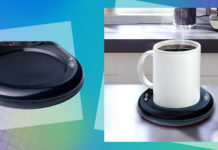For connoisseurs and casual enthusiasts alike, building a diverse and exquisite liquor collection is a journey of taste, culture, and craftsmanship.
However, once you’ve curated your selection of fine spirits, the challenge shifts to preservation.
Properly storing and caring for your bottles ensures that each sip retains its intended flavor profile and quality, offering an experience as rich as when the bottle was first opened. This guide delves into the essential techniques for liquor preservation, ensuring your collection stands the test of time.
Understanding the Enemies of Liquor
Before diving into preservation methods, it’s crucial to understand what can compromise the integrity of your spirits. Light, temperature fluctuations, oxygen, and humidity are the primary culprits that can alter the taste and quality of liquor. By mitigating these factors, you can significantly extend the life of your collection.
Storing Spirits Away from Light
Sunlight and even artificial light can degrade spirits over time, leading to changes in color and flavor. Ultraviolet (UV) rays cause chemical reactions within the liquid, which is why many premium spirits come in tinted bottles. To preserve the quality of your liquor, store bottles in a dark place away from direct sunlight, such as a cabinet or cellar.
Maintaining a Consistent Temperature
Extreme or fluctuating temperatures can adversely affect liquor. Heat accelerates aging and evaporation, while cold can cause liquids to contract, potentially compromising the seal of the bottle. The ideal storage temperature for most spirits is between 55°F and 60°F (13°C and 15°C). If you don’t have access to a cellar, choose a cool, stable environment in your home away from appliances and heating vents.
The Role of Oxygen: Sealing Bottles Properly
Once a bottle is opened, oxygen exposure begins, which can slowly start to oxidize the liquor, altering its flavor. While this process is much slower for spirits than for wine, it’s still important to minimize oxygen exposure. Ensure that bottles are tightly sealed after each use. For extra protection, especially for high-end spirits, consider using a vacuum pump designed for liquor bottles to remove air before sealing them again.
Controlling Humidity
Unlike wine, which benefits from a certain level of humidity to keep corks moist, spirits are less affected by humidity levels. However, extremely dry conditions can dry out corks over time, potentially allowing air to enter the bottle. If you’re using a wine cellar or cooler for storage, ensure it doesn’t exceed 70% humidity to avoid damaging labels and packaging, which are important for collectors.
Positioning Bottles Correctly
While wine is typically stored on its side to keep the cork moist, spirits should be stored upright. Storing liquor bottles horizontally can cause the alcohol to degrade the cork over time, leading to potential leaks and increased oxygen exposure. Keeping bottles upright ensures the longevity of the seal and preserves the liquor’s quality.
Optimizing Your Collection with Professional Wine Storage Services
For liquor collectors looking to preserve their spirits and wines in top conditions, professional storage services in Hayward can make a significant difference. These facilities maintain ideal temperature, humidity, and light conditions, ensuring the integrity and value of the collection over time. Hayward’s storage solutions cater to the unique needs of wine and spirits, offering peace of mind to collectors.
Managing Opened Bottles
Once opened, the clock starts ticking on a spirit’s optimal taste profile. While most spirits have a longer shelf life than other alcoholic beverages due to their higher alcohol content, they can still deteriorate over time. Consume opened bottles within a few years, and be extra cautious with liqueurs and flavored spirits, which are more prone to quality degradation due to added sugars and flavors.
Special Considerations for Rare Collections
For rare or vintage spirits, additional precautions may be necessary. Consider investing in professional-grade storage solutions, like climate-controlled cabinets, which offer precise temperature and humidity control. Insurance is also advisable for high-value collections to protect against loss or damage.
Regular Inspection and Rotation
Periodically inspect your collection for signs of evaporation or cork deterioration. Rotate bottles occasionally to ensure consistent conditions, especially if you’re using a storage solution with a known temperature gradient. This habit also gives you an opportunity to admire your collection and plan your next tasting.
Conclusion
Preserving a liquor collection is both an art and a science, requiring attention to detail and an understanding of how environmental factors can influence the integrity of spirits. By adopting these techniques, you can savor the exceptional tastes and experiences your collection offers for years to come.
Whether you’re a seasoned collector or just beginning to explore the world of fine spirits, proper preservation ensures that each bottle remains a treasure waiting to be enjoyed.





